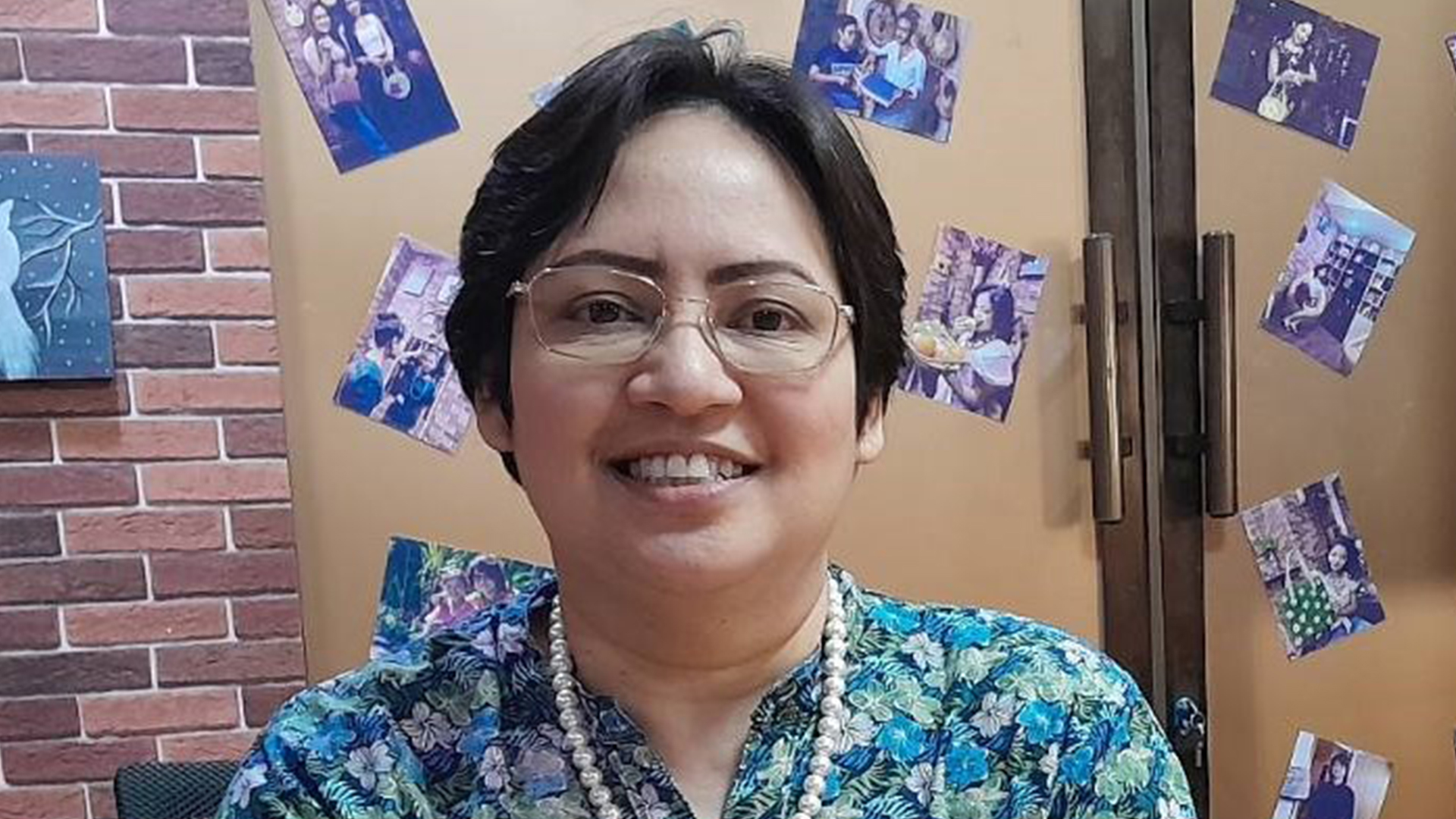Starting Point
Dr. Hnin Aye Ko is a medical doctor involved in public health issues. She works with the Population Service International and the Private Agency Collaborative Together, two international non-governmental organisations funded by the U.S. for HIV Prevention, reproductive health, and other related initiatives. She has obtained a Master’s Degree in Developmental Studies from the Yangon Institute of Economics. She studied women’s issues after attending the International Visitor for Leadership programmes in New York, Washington D.C., Texas and Seattle in 2015.
Later, she shifted her career to focus on developing social skills for school dropouts and participated in issues related to problem-solving, decision-making, critical thinking, empathy, communication, and interpersonal relationships. She also addressed social issues such as bully-boy tactics, bribery, forced conversion in mixed marriages, hate speech, and religious extremism.
In making her contribution, she has no one to name as her role model, as her motto is “no one is perfect".
Peace Journey
Her contribution to peace takes many forms, including organising interfaith dialogue in 49 townships (excluding Rakhine State, following the Meikhtila crisis in 2013), visiting places of worship, and clarifying misconceptions about Islam.
Furthermore, her primary focus ranges from religious teachings focused on peace and anti-forced conversion in mixed marriages to addressing the economic gap by establishing her own company, Women Development Cooperative Ltd.
In 2016, she conducted vocational training in soap-making, shoe-making, Myanmar’s thanakha, textile bag-making, clothing production, food processing, and farming in Yangon, Mon, and Kayin States, as well as in Sittwe and Thandwe in Rakhine State. The Women's Centre in Sittwe remains active, particularly in producing candles, soap, and scarves, in line with its motto "Engagement through Business," which involves both Buddhists and Muslims.
A Mental Counselling Centre has also been set up in Yankin, Yangon Region, offering services that include yoga, art therapy, craftsmanship, and meditation. In the future, the centre will be operated in Hsihseng, Southern Shan State, as well as in Kyauktaw and Sittwe, Rakhine State. At present, medical services are being provided with dignity and sanitation kits. Moreover, her company has worked on food production classes for fish, fish paste, soy sauce, and dry noodles.
Success Stories
She received the USAID grant for the Peace Foundation in 2018, which was conducted at the church, Madrasa Islamic School, Dhama Buddhist School, and Hindu Learning Centres. She conducted a simplified course of the U.S. Institute of Peace curriculum, covering understanding peace and conflict, mediation, peacebuilding, mitigation, and social skills and media literacy in Pyin Oo Lwin.
Hence, she received an award from Elazar Islamic Institute, Malaysia's Myanmar Branch. In late 2019, a workshop on Peace Education to integrate non-formal primary education was held in Mandalay, where she taught 25 students from Philanthropic Buddhist Schools and 30 students from Madrasa Islamic Schools. After gaining access to networking, she travelled to Kyauktaw in Rakhine State in May 2019, where she participated in an Orphan Support Programme, funded by the U.S., Germany, and the U.K.
Implementing her motto "Engagement through Business Approach," she successfully conducted online classes for making masks, soaps, dead body bags, hand gel, and scarves during the COVID-19 outbreak in Rakhine State. She also taught cooking classes on Indian and Rakhine cuisine, as well as farm-to-table practices. She observed that both the Myanmar New Year and Ramadan share a similar spirit of togetherness, inviting Buddhists and Muslims to join in the celebrations. She helped Internally Displaced Persons (IDPs) to take refuge at the community-owned centres in Sittwe, Rakhine State. She published a journal article on Religious Reconciliation in 2015-16. She also arranged educational and entertainment programs featuring cultural dances, drama, and songs promoting peace.
In her opinion, a curriculum for peace processes should be simplified in conformity with religious concepts, the training of trainers should be analysed and revised, and knowledge should be disseminated via networking from both the bird‘s-eye view and the grass-roots level. The commitments to peace and the actual needs of the country and the people should be considered.
Regarding the challenges, she argued that it was difficult to remain neutral and balanced without losing sight of one's vision and mission in peace issues. She perceived that simultaneously achieving both success and popularity is impossible. Additionally, it is challenging to balance among religious leaders.

